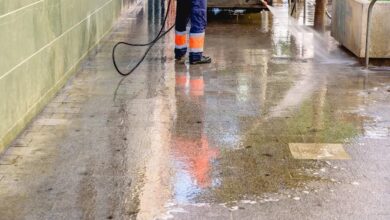The Environmental Impact of Using Organic Cleaning Products

The choices we make in a mundane area of our lives, like which cleaning products to use. This can have a positive (or negative) impact on our planet.
Organic cleaning products are surfacing as a more alternative. Are they green or another form of greenwashing?
This blog post will dissect the environmental effects of an organic cleaning product. This is to provide clarity to consumers and support their sustainable lifestyle choices. Read on to learn more.
The Organic Cleaning Product Market: Hype or Hope?
The market for organic cleaning products has been booming. With sales climbing as consumers seek to reduce their environmental footprint.
Yet, this trend has also led to the proliferation of ‘green’ marketing claims. This can often be misleading or unsubstantiated.
The Misconception of ‘Natural’ and ‘Organic’
‘natural’ and ‘organic’ are often used and crafted to evoke eco-friendliness. Products labeled as such may contain as many synthetic chemicals. Uncovering the true practices and ingredients behind these labels is essential.
The Chemical Debate: Identifying Harmful vs. Safe Ingredients
Understanding the chemical composition of cleaning products is crucial.
Harmful Chemicals: The Legacy of Household Cleaners
Professional cleaners often contain harmful substances when released into the environment. Phosphates and ammonia, for example, can lead to water pollution if not treated.
Safeguarding Against Greenwash: Certifications and Regulatory Bodies
Consumers can look to reputable certifications and regulatory bodies. This guides them in distinguishing an organic product. Institutions like:
- the Environmental Protection Agency (EPA)
- the US Department of Agriculture (USDA) Organic labels
This can ensure healthier choices.
The Microbial Impact: Antibacterials and the Ecosystem
The push for antibacterial products has raised concerns about their impact.
Navigating the Hygiene Trade-off
Antibacterials may seem essential for home cleanliness. The indiscriminate killing of bacteria can disrupt the delicate balance of our environment.
The Role of Probiotics: A Biodegradable Alternative
Probiotic cleaning products offer a biodegradable and sustainable approach to cleaning. It maintains a healthier balance of microorganisms in our environment. This is though their efficacy compared to traditional antibacterials is still under scrutiny.
The Life Cycle: From Production to Disposal
It’s essential to consider the entire life cycle of these products. Factors such as:
- the carbon footprint of ingredients
- energy consumption during production
- and the frequency and method of usage
These all contribute to the environmental load of organic cleaning products. Organic cleaning products are often lauded for their biodegradability. Their benefits can become null if not disposed of.
Landfilling can prevent decomposition. Flushing products down drains can lead to unintended consequences, such as algal blooms.
Consumers are well-advised to seek professional guidance. This can involve consulting with environmental scientists or specialists in non-toxic products.
This is to understand better the implications of an ingredient list. It’s Cleaning Time house cleaners can help you achieve your cleaning tasks.
Organic Cleaning Products in the Pantheon of Sustainable Living
The use of organic cleaning products has the potential to be a large component. Consumers must remain vigilant in their choices. This is to ensure their efforts contribute to environmental well-being.
As we move forward, the demand for such products must continue. This is to spur innovation and continue to push environmental standards. Only then can the promise of organic cleaning products be realized.
For more helpful tips, check out the rest of our site today!




